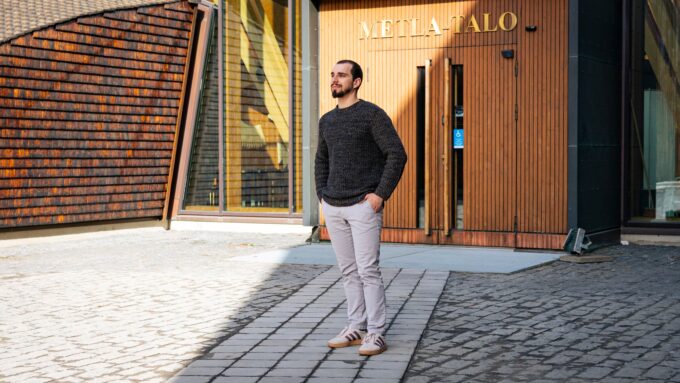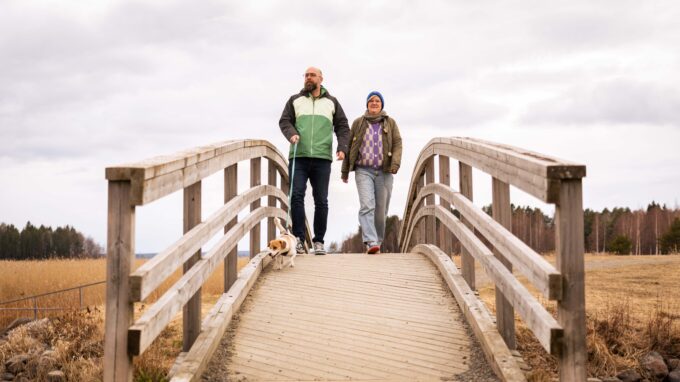–Once you know what you’re doing and understand the business, you’ll be fine, believes Marko Uutela, the founder of BCon Oy.
Marko Uutela began his studies in the environmental field, but an interest in forestry sparked during a job change he experienced in Western Ireland in 2000. There, he discovered that the forest industry was his true calling, and two years later, he enrolled in forestry studies at the then-University of Joensuu. By 2007, he had completed his master’s degree in agriculture and forestry.
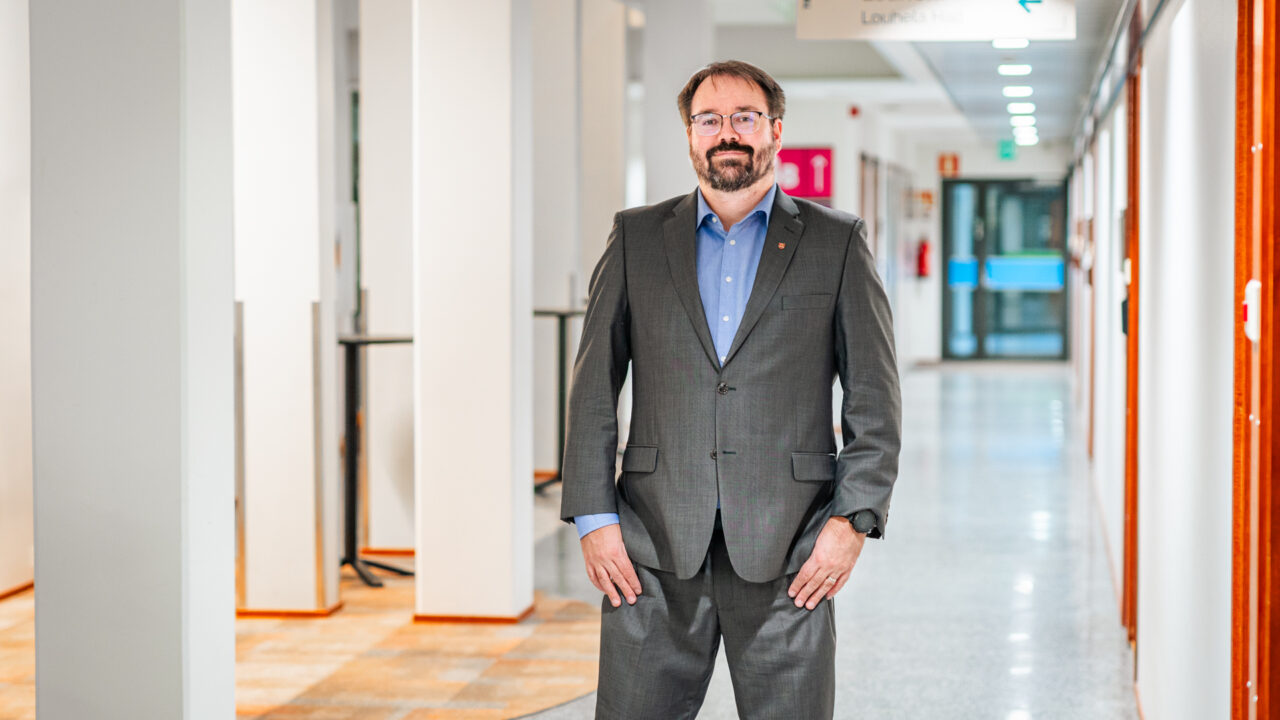
After graduation, Uutela began working at Rajaforest Oy, where he quickly gained a comprehensive understanding of forest business operations and eventually became the company’s CEO. He enjoyed a productive 12 years at Rajaforest before deciding it was time for a new chapter.
During this transitional period, Uutela began to contemplate whether he could commercialize his expertise.
Uutela believes that the future of the industry is closely tied to artificial intelligence and its many possibilities, from logistics to production optimization.
–I wondered if I could create my own business, Uutela recalls.
Coincidentally, several acquaintances approached him for help with wood chips and fuels. It soon became evident that there was a demand for his forestry expertise, prompting him to take the leap into entrepreneurship.
–I discovered a market for my skills, he says. Six months later, I launched my company, jumping straight into the deep end.
Paid One’s Dues
Before starting his company, Uutela took part in a new entrepreneur group coaching program organized by Business Joensuu. This helped him refine his business idea and think more broadly about entrepreneurship. He then participated in a business accelerator for a year, where he focused on basic business principles and setting development goals.
–A couple of important insights came from the accelerator that have brought me considerable joy ever since, Uutela reflects.
Although Uutela had solid knowledge in forest bioeconomy and energy, consulting was a new and exciting challenge for him. In the early days of his entrepreneurship, he approached smaller potential clients, such as forest machine contractors and small power plants. He describes these initial stages as an “apprenticeship process,” during which he assessed customers’ needs to develop his company’s services.
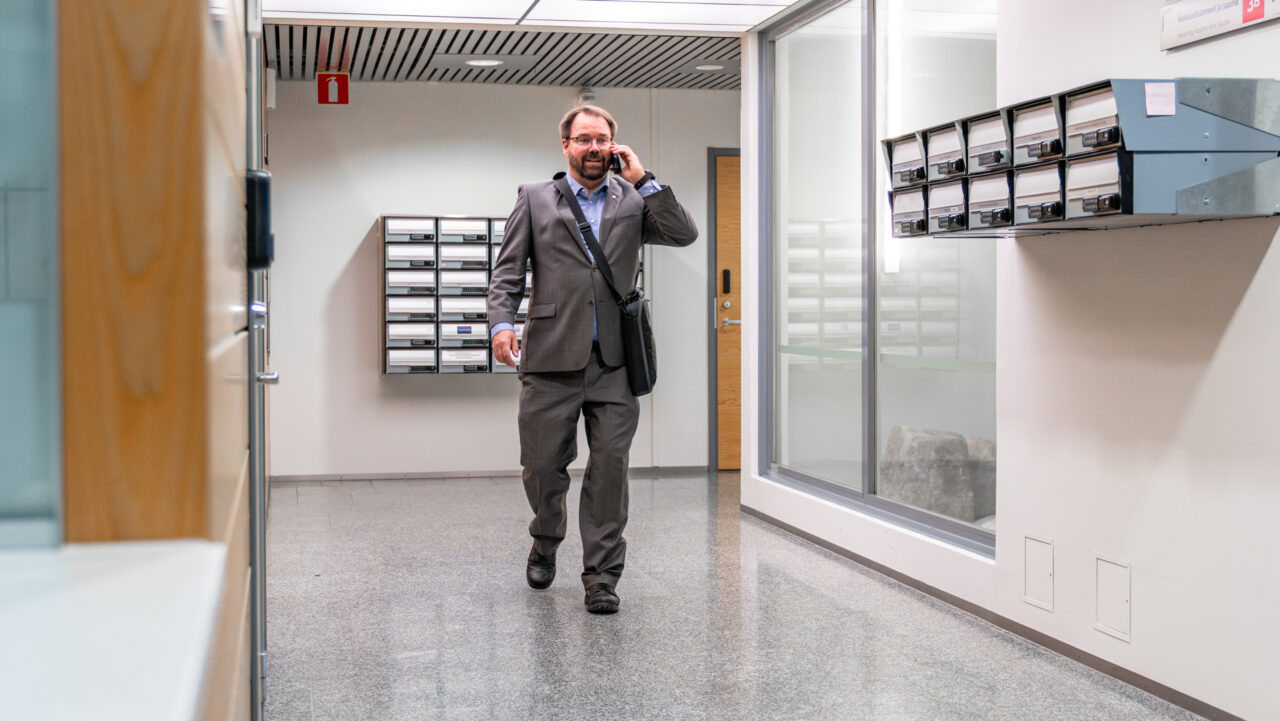
–I reached out to clients by phone to discuss their needs. Through this, I began to understand what the customer base wanted and what kinds of services they required, Uutela explains.
Uutela identifies the scarcity of raw materials and their responsible sourcing as the biggest challenges facing the forest bioeconomy. He believes that the future of the industry is closely tied to artificial intelligence and its many possibilities, from logistics to production optimization. Uutela also sees significant opportunities in biocarbon production.
–How can we develop effective methods for aviation fuels or marine methanol? Are there production solutions that are both robust and profitable? he ponders.
Customer orientation as a driver
Uutela has always been a strong advocate for a customer-centric approach, and this philosophy has guided him throughout his career. For him, it has been essential that work is based on genuine interaction with the customer, where their needs are understood and addressed promptly.
–There are no ready-made solutions; everything is unique, he says, adding that customer focus is not only the foundation of a company’s success but also the driving force behind his own work.
Uutela has always been a strong advocate for a customer-centric approach, and this philosophy has guided him throughout his career.
Throughout his career, Uutela has applied this mindset as an entrepreneur as well. He emphasizes the importance of flexibility and responsiveness as customer needs evolve.
–We can’t cling completely to the old ways, even as we adapt to new demands. The balance between the old and the new is how we move forward, Uutela notes.
Cooperation across borders
Uutela feels that personal relationships are also the key to international cooperation. His interest in and personal connection with Japan has been special to him.
He has a long-standing connection with a Japanese professor who has brought his group to Finland several times. Joint discussions on bioenergy and other topics have been not only interesting to him, but also valuable in personal and professional terms.
–For me, this relationship has been more than just business. I have made sure that we are in touch, but I have not actively set out to find new contacts in Japan.
In five years, we aim to have three to five employees, or we will have established new partnerships, with more than half of our revenue coming from international markets.
–However, the groundwork has been laid, and I hope it leads to greater opportunities, Uutela reflects.
For Uutela, managing a career and personal relationships extends beyond mere numbers and accomplishments; it involves holistic thinking and long-term commitment. He does not expect immediate international breakthroughs but believes that this sustained effort will yield results in the future.
–I see this long and personal journey as essential. Sometimes it leads to significant commercial successes, and even if it doesn’t, the experience has been invaluable, Uutela states.
Networking takes you forward
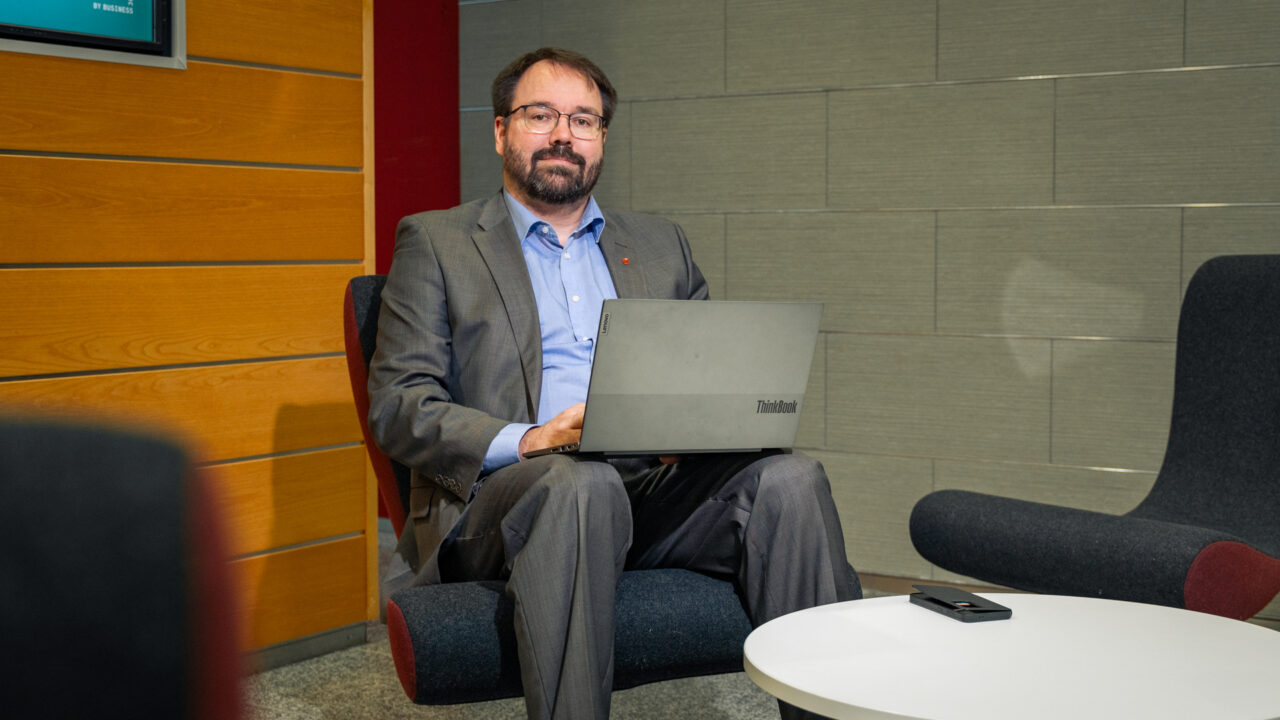
Marko Uutela believes that success is built on the right relationships and networks. He sees networking not merely as a commercial endeavor, but also as the cultivation of genuine cooperation and trust. He views his practical expertise as a key competitive advantage.
–We possess in-depth knowledge, and our ability to apply it practically sets us apart, he says.
Uutela looks to the future with optimism, expecting his team to grow in the coming years. He also believes in the potential for international expansion.
–In five years, we aim to have three to five employees, or we will have established new partnerships, with more than half of our revenue coming from international markets.
For Uutela, being an entrepreneur means continuous learning and dedication. He strongly believes in the company’s growth prospects and feels highly motivated in this endeavor. Working from a home office allows him to be close to his family.
He values the flexibility to schedule both work and leisure as he sees fit, and having time management in his own hands. Uutela acknowledges that working long hours elsewhere could present challenges.
Once I’ve completed everything necessary, I can take a break. I plan to take a week’s vacation during Christmas and the winter holidays. Next summer, I aim to take a proper summer vacation — unless work calls, Uutela concludes.



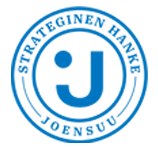

This material was produced as part of the activities of the City of Joensuu Innovation Ecosystem Agreement (ERDF), co-funded by the European Union and the city of Joensuu.


